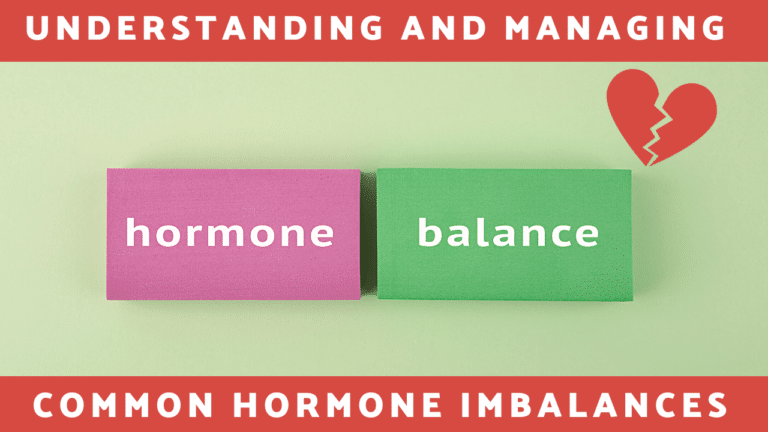Hormones serve as the body’s chemical messengers, orchestrating essential functions including metabolism, reproduction, mood regulation, and stress response. When these delicate systems fall out of balance, the consequences can be profound—leading to persistent fatigue, unpredictable mood swings, weight fluctuations, and various metabolic disorders that impact quality of life.
The foods we consume daily play a crucial role in supporting hormonal harmony. From providing the raw materials needed for hormone synthesis to influencing how our bodies process and regulate these vital compounds, nutrition forms the foundation of endocrine wellness. This comprehensive guide explores evidence-based dietary strategies that can help optimize your hormone health naturally, empowering you to take control of your endocrine wellness through informed food choices.
The Role of Nutrition in Hormone Health
The intricate relationship between nutrition and hormone function extends far beyond simple calorie counting. Our endocrine system relies heavily on specific nutrients to synthesize hormones, facilitate proper signaling between cells, and maintain the delicate balance required for optimal health. When we provide our bodies with the right nutritional building blocks, we create an environment where hormones can function at their peak.
Balanced nutrition acts as a stabilizing force, helping to minimize the dramatic hormonal fluctuations that can lead to uncomfortable symptoms. By understanding which foods support endocrine function, individuals can develop eating patterns that promote hormonal resilience and reduce the likelihood of imbalances. This nutritional foundation becomes particularly important during times of stress, hormonal transitions, or when managing conditions that affect endocrine health.
Key Foods That Support Hormone Health
Strategic food choices can significantly impact hormonal balance, with certain nutrients playing particularly important roles in endocrine function. The following categories of foods have been scientifically shown to support various aspects of hormone health, from production and regulation to metabolism and elimination.
Omega-3 Fatty Acids
Omega-3 fatty acids represent one of the most powerful nutritional tools for hormone support, serving as essential building blocks for hormone production while simultaneously reducing inflammation throughout the body. These healthy fats improve insulin sensitivity and enhance communication between hormone-producing cells, creating a more responsive and balanced endocrine system.
The best dietary sources include fatty fish such as salmon, sardines, and mackerel, along with plant-based options like walnuts, flaxseeds, and chia seeds. Research has demonstrated significant reductions in inflammation markers and improved insulin sensitivity with regular omega-3 consumption, making these foods particularly valuable for individuals dealing with hormonal imbalances related to inflammation or metabolic dysfunction.
Fiber-Rich Foods
Dietary fiber plays a multifaceted role in hormone regulation, influencing everything from blood sugar stability to estrogen metabolism. High-fiber foods help maintain steady glucose levels, preventing the insulin spikes that can disrupt other hormonal systems throughout the body.
Excellent sources include whole grains like quinoa and oats, legumes such as lentils and chickpeas, and a variety of fruits and vegetables. The impact of fiber on hormonal health is substantial—studies show that fiber-rich diets are associated with up to a 25% improvement in insulin sensitivity, which can reduce risk factors for hormone-related conditions like polycystic ovary syndrome (PCOS). Additionally, fiber supports the elimination of excess estrogen from the body, helping maintain healthy estrogen levels.
Phytoestrogen-Rich Foods
Phytoestrogens are plant compounds that can mimic the effects of estrogen in the body, offering particular benefits for individuals experiencing estrogen-related hormonal challenges. These natural compounds can help fill the gap when estrogen levels are low or provide balance when levels are excessive.
Key sources include soy products like tofu and tempeh, flaxseeds, chickpeas, and various nuts and seeds. Clinical trials have shown that phytoestrogen intake among postmenopausal women correlates with a 30-40% reduction in the frequency of hot flashes, demonstrating their practical value for managing menopausal symptoms and supporting estrogen balance naturally.
Antioxidant-Rich Foods
Oxidative stress can significantly impact hormone production and function, making antioxidant-rich foods essential for endocrine health. These protective compounds help shield hormone-producing glands from damage while supporting the overall health of the endocrine system.
Powerful sources include colorful berries like blueberries and blackberries, dark leafy greens such as spinach and kale, green tea, and even dark chocolate in moderation. These antioxidants, including vitamin E and polyphenols, actively reduce oxidative stress induced by adrenal hormone imbalances, contributing to better overall endocrine function and hormonal stability.
Cruciferous Vegetables
Cruciferous vegetables contain unique compounds called glucosinolates that support the body’s natural detoxification processes, particularly for excess estrogens and environmental hormone disruptors. This detoxification support is crucial for maintaining healthy hormone levels and reducing the burden of toxic compounds that can interfere with normal endocrine function.
Include vegetables like broccoli, cauliflower, kale, Brussels sprouts, and cabbage in your regular meal rotation. These vegetables help detoxify environmental estrogens and support healthy estrogen levels through their impact on liver function and phase II detoxification pathways.
Gut-Healthy Foods
The gut microbiome plays an increasingly recognized role in hormone regulation, influencing everything from estrogen metabolism to insulin sensitivity. Supporting gut health through targeted food choices can have far-reaching effects on hormonal balance throughout the body.
Incorporate probiotic-rich foods like Greek yogurt, kefir, and fermented vegetables, along with prebiotic foods such as leafy greens, onions, garlic, and asparagus. A healthy gut microbiome actively supports hormone production and regulation, making digestive health a cornerstone of endocrine wellness. The beneficial bacteria in these foods help metabolize hormones properly and can even produce certain hormone-like compounds that support overall balance.
Balanced Eating Patterns
Creating sustainable hormone-supporting eating patterns involves more than simply including specific foods—it requires understanding how different macronutrients work together to maintain hormonal stability. The combination of protein, healthy fats, and complex carbohydrates at each meal helps stabilize blood sugar levels, preventing the insulin fluctuations that can cascade into other hormonal imbalances.
Meal timing and consistency also play crucial roles in hormonal regulation. Regular eating patterns help maintain stable energy levels and support the body’s natural circadian rhythms, which influence hormone production cycles. Balanced meals that combine these three macronutrients effectively stabilize blood sugar and reduce hormonal fluctuations throughout the day, creating a foundation for long-term endocrine health.
Science & Data
The scientific evidence supporting nutrition’s impact on hormone health continues to expand, with recent research providing compelling data on the effectiveness of dietary interventions. Clinical studies consistently demonstrate measurable improvements in hormonal markers when individuals adopt targeted nutritional strategies.
Recent research has shown particularly promising results in several key areas. Omega-3 fatty acid supplementation has been linked to significant improvements in insulin sensitivity, while high-fiber diets show measurable benefits for glucose regulation and estrogen metabolism. The data on phytoestrogens is equally encouraging, with controlled trials demonstrating substantial reductions in menopausal symptoms for women consuming these plant compounds regularly.
These findings underscore the practical value of nutritional approaches to hormone health, providing evidence-based support for dietary recommendations that can complement medical treatments and support overall endocrine wellness.
Lifestyle Factors Complementing Nutrition
While nutrition forms the foundation of hormone health, several lifestyle factors work synergistically with dietary choices to optimize endocrine function. Proper hydration supports the liver’s ability to process and eliminate hormones effectively, making adequate water intake essential for hormonal balance. The liver serves as the body’s primary detoxification organ for hormones, and optimal hydration ensures these processes function efficiently.
Stress management techniques, quality sleep habits, and minimizing exposure to environmental toxins all complement nutritional efforts to support hormone health. The European Society of Endocrinology emphasizes these holistic approaches in their recommendations for maintaining endocrine wellness throughout life. When combined with targeted nutrition, these lifestyle modifications create a comprehensive approach to hormonal balance that addresses multiple factors simultaneously.
FAQ Section
What foods help balance hormones naturally? Foods rich in omega-3 fatty acids (such as salmon and flaxseeds), high-fiber options (including whole grains and legumes), antioxidant-packed choices (like berries and leafy greens), and phytoestrogen-containing foods (such as soy and chickpeas) all contribute to natural hormone regulation. These foods provide essential nutrients for hormone production while supporting the body’s natural balance mechanisms.
Can diet reduce menopausal symptoms? Yes, dietary choices can significantly impact menopausal symptoms. Phytoestrogen-rich foods like soy products and flaxseeds may help alleviate hot flashes and support estrogen balance during the menopausal transition. Additionally, maintaining stable blood sugar through balanced meals can help reduce mood swings and energy fluctuations commonly experienced during menopause.
How does fiber affect hormone levels? Dietary fiber influences hormones in multiple ways. It improves insulin sensitivity, helping maintain stable blood sugar levels and reducing insulin-related hormonal disruptions. Fiber also aids in the metabolism and elimination of excess estrogen from the body, supporting healthy estrogen balance and reducing the risk of estrogen dominance.
Are omega-3 fatty acids important for hormone health? Absolutely. Omega-3 fatty acids are essential for hormone production, serving as building blocks for many hormones while reducing inflammation that can interfere with hormonal signaling. They improve communication between hormone-producing cells and enhance insulin sensitivity, making them crucial for overall endocrine function.
Does gut health influence hormone balance? Yes, gut health plays a significant role in hormone regulation. The gut microbiome influences estrogen metabolism, produces certain hormone-like compounds, and affects overall inflammatory status in the body. A healthy gut supports proper hormone production and regulation, making digestive health essential for endocrine wellness.
Conclusion
Nutrition serves as a powerful foundation for hormone health, offering a natural and accessible approach to supporting endocrine wellness. By prioritizing whole, nutrient-dense foods and understanding how different nutrients impact hormonal function, individuals can take meaningful steps toward achieving better hormonal balance and overall health.
The evidence is clear: strategic dietary choices can significantly influence hormone production, regulation, and metabolism. From omega-3 fatty acids that reduce inflammation to fiber that supports estrogen balance, the foods we choose daily have profound effects on our endocrine system. Creating sustainable eating patterns that incorporate these hormone-supporting foods provides a practical framework for long-term endocrine health.
To maximize the benefits of nutritional approaches to hormone health, consider pairing these dietary strategies with comprehensive lab testing for personalized insights into your unique hormonal profile. Understanding your current hormone levels can help guide targeted nutritional interventions and track progress over time.
Order Your Hormone Panel with Walk-In Lab today to gain valuable insights into your endocrine health and create a personalized approach to hormone balance through nutrition and lifestyle optimization.
This content is for informational purposes only and not a substitute for professional medical advice. Always consult with a healthcare provider before making significant changes to your diet or health routine, especially if you have existing health conditions or are taking medications.





